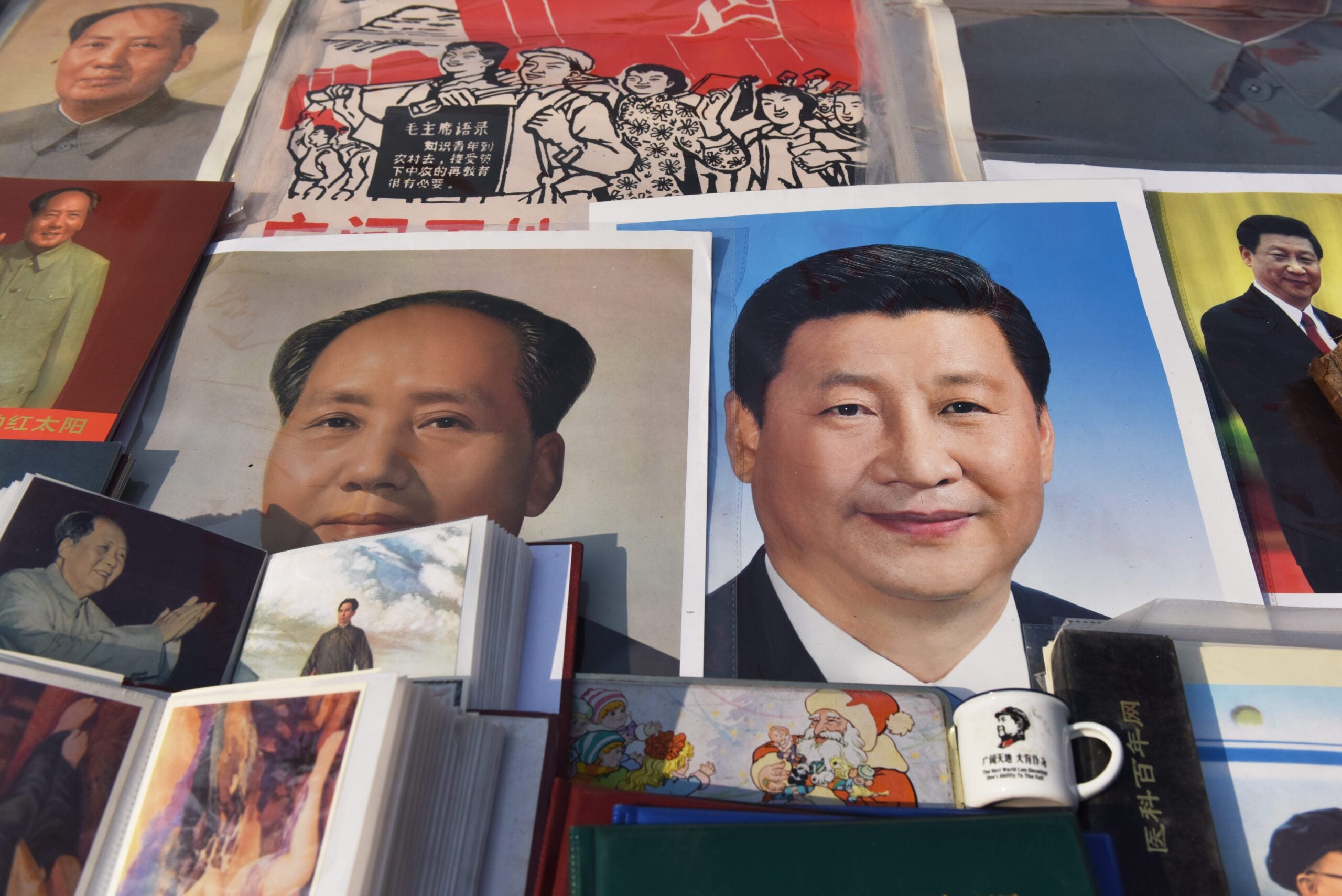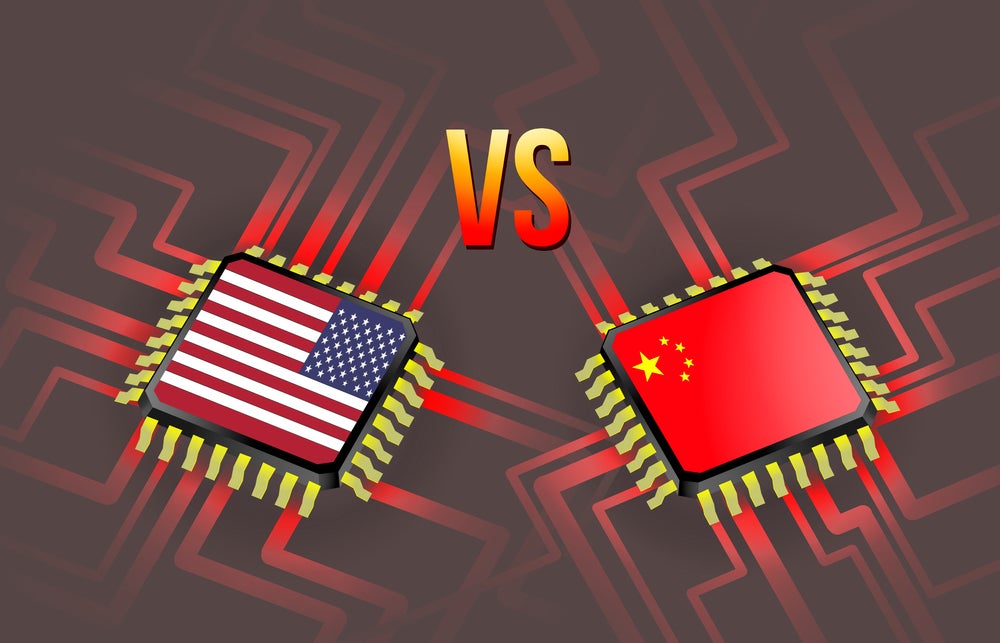
Since Ant Group’s spectacular fall from grace in November of last year, the tech industry in China has felt the wrath of Beijing’s regulatory ambitions. Seemingly, every week, a new law is passed aimed at restraining the industry, which can make it difficult to keep up with what is happening in the Middle Kingdom. Verdict breaks down the various areas in which Beijing has introduced new laws, what they entail and which companies have been affected.
To some, China’s regulatory changes may seem sudden and impulsive, but that is far from true. In fact, these moves are political, comprehensive, profound and strategically planned. The sudden tide of regulatory changes is the culmination of years of careful economic and political preparations by President Xi Jinping. At its core, everything boils down to one thing: power.
The timing is also not arbitrary. Considering that the 20th Party Congress is coming up in October, time is of the essence to the President.
“Xi is using swift and brutal regulatory crackdowns to write a new social contract with the Chinese people, which will be the centrepiece of next October’s climacteric 20th Party Congress, aimed at keeping him in power for life and the Party for another 100 years, and enable China to evolve a global economic and security zone around itself very largely independent of US technology and influence,” explains Michael Orme, senior analyst at GlobalData and China specialist.
“The brutality and speed of the regulatory crackdowns reflect the Party’s need to head off a growing anti-capitalist mood among those born after 1990,” Orme said.
Playing both sides
At first sight, China’s pushback against the tech industry may appear counterintuitive. Xi has made it very clear that technological superiority is one of the country’s top priorities. However, a closer analysis shows that the latest regulatory changes can largely be split into two categories.
“I think you have to begin to look at different parts of the economy to see what the impact is going to be on growth and profitable companies,” says Orme.
The first area concerns the upstream section of the technology industry, consisting of the infrastructural companies central to China’s tech strategy. These firms are active in semiconductors, cloud services, quantum computing, robotics and related areas.
Companies in these sectors continue to enjoy significant government support as they are essential to China’s goal of becoming independent from other nations, notably the US.
Secondly, there is the downstream side of the tech sector. This entails companies directly in touch with China’s big consumer base. Involved in this sector, for instance, are social media platforms, ecommerce sites and video game developers.
These companies have been hit hard by Beijing’s crackdown, which is part of Xi’s plan of establishing a new social contract with the Chinese people. For the past four decades, these tech titans have been given a considerable amount of freedom.
As Orme explained, they were needed to develop essential digital infrastructures in China. “There was deliberately a regulation-light environment,” he explains.
However, many now argue that these companies have exploited this freedom, leading to vast inequalities. Time thus for the party to rein them in.
That said, we can still expect growth to be on top of the agenda. As has been reiterated by Xi Jinping and the CCP on numerous occasions, technological independence from the US is still a primary goal.
Orme underlines this:
“Shenzhen is not about to become a ghost town, and Tencent and Alibaba are not about to fold up their tents but pitch new ones.”
Protect the data first
The first theme in Beijing’s current regulatory push concerns data collection. If data truly is the new oil, Xi wants to control it. Many big tech companies collect a substantial amount of personal and company data and, until recently, this was regulated only by the industry itself.
“When we boil off a great deal of fat, it’s about the CCP, not the free market controlling the data flow in China,” Orme emphasised.
Recently, China passed a sweeping law aimed at governing how personal data is collected, used and managed. The Personal Information Protection Law (PIPL), set to come into effect on November 1, is the country’s toughest regulation on data yet and has been compared to Europe’s General Data Protection Regulation (GDPR) by legal experts.
“China is now trying to send a clear message that they have a strong data protection regime. Because when you read through the PIPL text, you will see virtually all the provisions of GDPR,” said Ilia Kolochenko, founder of ImmuniWeb and a member of Europol Data Protection Experts Network.
This piece of legislation is primarily aimed at protecting consumers. The general sentiment among Chinese citizens is that many big tech companies have amassed too much power to collect data excessively, with consumers having little to no power to object. In fact, this is not dissimilar to the argument underpinning the adoption of GDPR in the European Union and the UK.
However, China’s objective to tighten regulation around data protection contains an additional layer: national security. Xi’s administration is worried about personal, company and national data being leaked to foreign adversaries. As a result, amid heightened tensions between Beijing and Washington, China is moving ahead aggressively with regulations designed to safeguard cybersecurity.
Last month, the Cyberspace Administration of China (CAC) introduced a draft plan that requires companies that hold personal data of over one million users to go through additional cybersecurity reviews before listing abroad.
Shortly after, China’s Ministry of Industry and Information Technology (MIIT) announced a three-year action plan to boost the country’s cybersecurity industry that calls on key industries such as telecommunications to devote at least 10% of their IT upgrade budget to cybersecurity protection.
Chinese officials are concerned that if domestic companies disclose information in accordance with US legal requirements for stock market debuts, management data and personal information may be exposed. A big part of the crackdown is, therefore, to establish an ecosystem that keeps Chinese data in China.
This issue became particularly prominent at the time of Didi Chuxing’s rollercoaster initial public offering (IPO). China’s biggest ride-hailing app celebrated a record-setting $4.4bn debut in New York, making it the second-largest US debut of a Chinese company after Alibaba’s 2014 listing. However, its victory was short-lived. A mere three days after the company was listed on the New York Stock Exchange (NYSE), the CAC announced a probe into Didi.
Citing illegal collection of users’ personal data, the app was subsequently removed from Chinese app stores. Soon after, the ride-hailing giant’s share prices plummeted. The company lost $15bn in market value in one single day.
In the days and weeks that followed, other companies such as Full Truck Alliance and Kanzhun also became victims of governmental probes.
“Today, we find that Chinese companies IPOing in the US will have to spell out on the first page of their prospectus’ regulatory risks.’ At the same time, the SEC is under mounting pressure to try to enforce great transparency among US-listed Chinese companies within the 3-year time period for them to show marked progress or get delisted,” Orme explains.
As a result, many Chinese companies that had planned to list in the US have since changed their minds. Notably, ByteDance, the social media giant behind the popular app TikTok, postponed its overseas listing plans earlier this year. Instead, it is now aiming for a Hong Kong IPO.
“I think what Beijing is really up to is boosting Hong Kong in the mid-term over the US for listing, and you can be sure that even though it’s just softened its policy on US IPOs, the Chinese regulators will make it much easier and far less tedious for Chinese companies to list in Hong Kong than the US,” Orme says.
“Too big to fail” antitrust clampdown
The next overarching theme in Xi’s envisioned social contract with the Chinese people is the breaking up of monopolies. Size matters, and the larger a company gets, the more power it amasses. This is a trend that worries China’s ruling party. As a result, regulators in Beijing have launched tough antitrust probes into numerous companies.
Alibaba was the first and most significant victim of the storm of antitrust fines, conducted mostly by the State Administration of Market Regulation (SAMR), China’s market watchdog, which was formed in 2018.
In May, the ecommerce behemoth was slapped with a $2.8bn antitrust fine, which resulted in a net loss of 5.47bn yuan ($847.5m) for the company.
Subsequently, almost every big name in Chinese tech was grilled for antitrust violations, including Tencent (gaming), Meituan (food delivery), Didi Chuxing (ride-hailing), Baidu (search), ByteDance (social media) and JD.com (ecommerce).
Recently, the SAMR formally blocked Tencent’s attempt to merge China’s top two videogame streaming sites, Huya and DouYu. If the deal had gone through, Tencent would have achieved a market share of 70% in the video game live streaming industry, which would have made Tencent the world’s biggest games publisher.
Beijing’s attempt to break up big tech is not new. An antitrust law was drafted back in 2008, but the enforcement thereof did not pick up until November 2020, when the SAMR introduced new draft rules to regulate internet platforms. Moreover, the time coincides with the upcoming 20th Party Congress, as Michael Orme explains:
“All roads lead to the 20th Party Congress next October when Xi’s fate will be determined, and this compresses the timing and gives a sharp edge to the government’s campaign.”
Evidently, Chinese regulators are showing their muscle and are adamant about setting a precedent. The days of China’s era of internet freewheeling has come to an end.
Centred around the Middle Kingdom
As part of the larger agenda, the CCP is laying out a plan for a less US-centric and more Sino-centric global digital order. Xi’s goal is to reduce the country’s vulnerable dependence on other tech-leading nations, including Japan and a few selected European states – but most notably the United States.
“At base, China is in the process of building a global economic and security zone around itself. It insists this is for its survival and increased autonomy, which is as independent as possible from US technology and influence,” Orme says.
This explains the country’s recent crackdown on cryptocurrencies and its aggressive push for a national digital currency.
The campaign on cryptocurrencies began when three major financial institutions issued a statement in May, indicating the government’s determination. At a national meeting of the State Council’s Financial Stability and Development Committee, the issue of cryptocurrency was once again brought up. A committee document specifically called for a “crackdown on bitcoin mining and trading behaviour.”
Shortly after, China closed down bitcoin mining in inner Mongolia, Xinjiang, Yunnan and Sichuan, places which had been major mining centres. This sudden and far-reaching move caused a frenzy in the market, as the country accounted for as much as 70% of the global cryptocurrency supply.
Meanwhile, China is pushing forward its state-backed digital currency and its own blockchain network. Recently, China’s digital currency – backed by several major state banks – became available for users in several cities. For instance, commuters in Beijing can now use the e-Yuan to buy tickets for the underground.
Xi’s push to implement a state-backed digital currency can be seen as a move to take back control over the economy and to weed out private sector cryptocurrencies such as bitcoin and ethereum.
No more “disorderly expansion of capital”
The final theme is a little more difficult to summarise in a few words, as it combines all the changes that are currently taking place in China. It concerns Xi’s all-encompassing aim to shape every aspect of Chinese society and culture.
Essentially, Xi does not like the idea that private incentives can impinge on the public interest. The Marxist undertone is obvious. However, at its core, this sentiment is not too dissimilar to what is happening in the West.
Many millennials and GenZs in China are fed up with the corruption, inequality and monopolies spawned by the “growth at virtually whatever cost” era that lasted that commenced when China opened up to the West in the late 1970s.
During a meeting on December 11, 2020, China’s top leaders vowed to prevent the “disorderly expansion of capital”. The catch-all phrase, when interpreted as “growth at the expense of the public interest,” explains the latest crackdown on the gaming and edtech industry.
Much of the crackdown on the education sector was an attempt to relieve family budgets to make having children more attractive. In China’s highly competitive environment, raising a child is not cheap. Often parents spend over $600 a month on private tutoring – well above average household income.
“Young Chinese don’t seem to want children – too much hassle and too costly given high medical, property and educational costs – and young urban Chinese women are seemingly increasingly underwhelmed by the traditional Chinese concept of marriage,” Orme says.
As a result, China’s is facing a substantial demographic crisis. The population is ageing faster than almost any other country. At the current rate, the proportion of Chinese over retirement age will reach 40% by 2050.
Alleviating the burden on young urban families is, therefore, a key strategy for the CCP. Related to this is the clampdown on the gaming industry.
Video game addiction has become a rising problem among Chinese children and adolescents. Before the advent of mobile gaming and China’s video game market becoming the biggest in the world, a report cited in 2007 claimed 6% of China’s teenaged population were playing online games more than 40 hours a week.
As a result, gaming companies have been called on to restrict children to a few hours of gameplay and to add payment caps and parental locks. In 2017, gaming giant Tencent introduced a 9 pm sign-in curfew on its popular mobile game Kings of Glory.
More recently, the company started deploying so-called Midnight Patrol facial recognition to stop minors from breaking curfew. This technology checks on players going on a gaming binge after the cut-off time or spending a certain amount of credit using facial recognition.
If the face matches the right government ID, then the player can continue. If not, or if the player doesn’t consent to the scan, then they are kicked off the game.
What does this mean for investors?
Given the uncertainty currently present in the Chinese market, many foreign investors need to think twice before making their move to the far east. But for many, it is too big a market to stay away from for good.
“Beijing calculates that it can get away with temporarily traumatising foreign investors and companies because the lure of China as a huge and faster-growing market than either the US or the EU over the next decade is simply too great for them to ignore–the drive to self-sufficiency notwithstanding,” Orme remarks.
Faisal Rafi, head of research at RisCura, a global investment company that specialises in Chinese market investments, also appears optimistic:
“In a nutshell, we still have confidence,” he tells Verdict. “The regulations that have come in have been overdue in some areas, both from a comparable with developed markets (like data privacy or monopoly regulation) and to rein in some of inevitable ‘wilder west’ tendencies within any fast-growing industry.”
“It is unfortunate that there have been several regulatory changes all at once, but the ingredients for creating tech giants remain firmly in place in China,” he added.
Meanwhile, Chetan Sehgal, lead portfolio manager at Templeton Emerging Markets Investment Trust offers a more cautious tone.
“Investors must reconsider their investment strategies to ensure that they are not out of line with Chinese policy objectives. We do not foresee the debilitating policy changes which have been applied to the education sector being extended to other sectors, but investor assessments of policy risk will undoubtedly rise as a consequence of these actions,” he tells Verdict.
Another company that Verdict reached out to declined to comment on the matter, saying that the topic was currently too sensitive to discuss. This type of caution perhaps indicates that firms operating in China are putting up a brave front while the uncertainty in China continues.
In Kolochenko’s view, consumers, foreign investors, and foreign businesses will enjoy a lot of benefits over the next three to five years. He added that the new regulations, summarising China’s hitherto piecemeal approach to data and privacy regulation, would be a positive change for domestic and foreign businesses alike.
All in all, when it comes to the Chinese market, one needs to understand a complex network of underlying ambitions, whereby short-term changes need to be weighed against long-term goals, as Orme points out:
“The big question as far as China is concerned is: are you going to be on the right side of history – going for the mother of all macro bets, which is investing in China – or are you going to be on the wrong side of history?”







